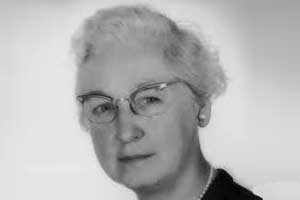- Home
- Medical news & Guidelines
- Anesthesiology
- Cardiology and CTVS
- Critical Care
- Dentistry
- Dermatology
- Diabetes and Endocrinology
- ENT
- Gastroenterology
- Medicine
- Nephrology
- Neurology
- Obstretics-Gynaecology
- Oncology
- Ophthalmology
- Orthopaedics
- Pediatrics-Neonatology
- Psychiatry
- Pulmonology
- Radiology
- Surgery
- Urology
- Laboratory Medicine
- Diet
- Nursing
- Paramedical
- Physiotherapy
- Health news
- Fact Check
- Bone Health Fact Check
- Brain Health Fact Check
- Cancer Related Fact Check
- Child Care Fact Check
- Dental and oral health fact check
- Diabetes and metabolic health fact check
- Diet and Nutrition Fact Check
- Eye and ENT Care Fact Check
- Fitness fact check
- Gut health fact check
- Heart health fact check
- Kidney health fact check
- Medical education fact check
- Men's health fact check
- Respiratory fact check
- Skin and hair care fact check
- Vaccine and Immunization fact check
- Women's health fact check
- AYUSH
- State News
- Andaman and Nicobar Islands
- Andhra Pradesh
- Arunachal Pradesh
- Assam
- Bihar
- Chandigarh
- Chattisgarh
- Dadra and Nagar Haveli
- Daman and Diu
- Delhi
- Goa
- Gujarat
- Haryana
- Himachal Pradesh
- Jammu & Kashmir
- Jharkhand
- Karnataka
- Kerala
- Ladakh
- Lakshadweep
- Madhya Pradesh
- Maharashtra
- Manipur
- Meghalaya
- Mizoram
- Nagaland
- Odisha
- Puducherry
- Punjab
- Rajasthan
- Sikkim
- Tamil Nadu
- Telangana
- Tripura
- Uttar Pradesh
- Uttrakhand
- West Bengal
- Medical Education
- Industry
Dr Virginia Apgar: Google Doodle Honours American Anesthesiologist on her 109th Birthday

New Delhi: Google recently dedicated a Doodle to honour Dr Virginia Apgar, a pioneering US clinician who developed a quick health test for infants to determine if a newborn needs help to breathe or having heart trouble.
The Doodle marks what would have been Dr Apgar's 109th birthday. Dr Apgar developed the now ubiquitous ‘Apgar score’ in 1952.
Apgar score
The Apgar test is performed on a baby at 1 and 5 minutes after birth. The 1-minute score determines how well the baby tolerated the birthing process and the 5-minute score tells the health care provider how well the baby is doing outside the mother's womb, according to the US National Library of Medicine.
The test can be performed by a doctor, midwife, or nurse to examine the baby's breathing effort, heart rate, muscle tone, reflexes and skin colour. Each category is scored with 0, 1, or 2, depending on the observed condition.
The test is based on a total score of 1 to 10. A score lower than 7, should warn caregivers that the baby needs medical attention. A higher score in the test means less threat to the baby's survival.
The Apgar score contributed immensely towards reducing infant mortality.
Who was Dr Virginia Apgar?
Dr Virgina Apgar was born in 1909 in Westfield, New Jersey. She graduated from the College of Physicians and Surgeons at Columbia University (P&S) in 1949, when the US had just seven female doctors.
Virginia Apgar became the first female anesthesiologist, a physician, dentist or nurse trained in anaesthesia and perioperative medicine, treating the newborn babies with the required medical attention, reports Mail Today.
She was appointed the first woman Professor at the College of Physicians and Surgeons of Columbia University in 1949, according to a biography of the clinician at the Columbia University website.
She passed away due to cirrhosis of the liver on August 7, 1974. Dr Apgar's work on prevention of infant mortality was eventually recognised as she was inducted into the National Women's Hall of Fame in the US. A US postage stamp carrying her portrait was also released after her death.
Garima joined Medical Dialogues in 2017 and currently works as the Senior Editor. She oversees coverage of all healthcare topics, with a focus on medico-legal cases, regulatory updates, decisions by NMC, DCI and medical councils, developments in medical education, government policies, and news on medical and dental colleges. She holds a Master’s degree in Journalism and Mass Communication and can be contacted at editorial@medicaldialogues.in | 011-43720751.


